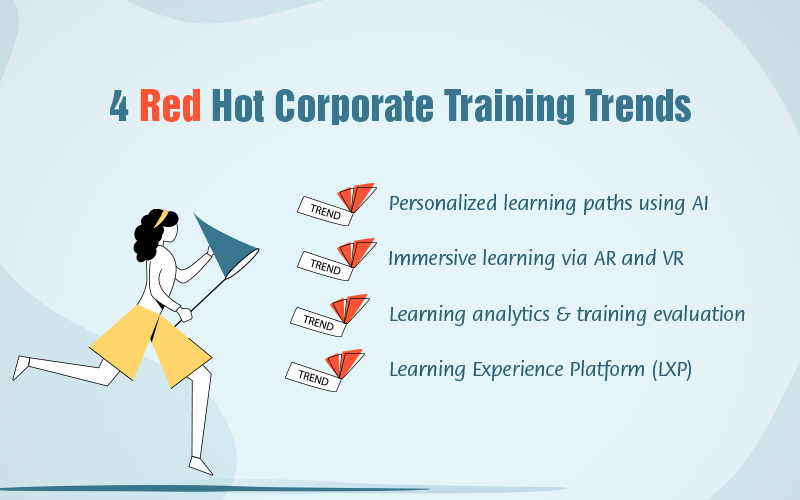4 Popular Free LMSs – A Comparison
Check this blog to know about 4 widely-used free LMSs.

Ed is the L&D manager of an auto component manufacturer. A month ago, his company decided to go for a new Learning Management System (LMS) to meet its burgeoning training management needs, and Ed was entrusted the responsibility of purchasing the LMS. However, to his surprise, the company reduced its training budget by 10%.
Ed is not alone. Many in the corporate training community face a similar predicament. Several companies intend to go for new LMSs, to meet their ever-increasing training needs, but do not have the financial resources needed to buy them.
This problem can be overcome by opting for free LMSs. Most developers of free learning management platforms offer their products free of charge to organizations that don’t use these platforms to sell courses.
There are hundreds of organizations that offer free LMSs. Today, let us evaluate 4 free LMSs, used extensively, on the basis of the following parameters:
- Degree of openness of code
- Ease of setting up and customization
- Support provided to learning on mobile devices
1. MOODLE
MOODLE is the acronym for Modular Object-Oriented Dynamic Learning Environment. This learning management powerhouse is the leader of the free LMS world. Though MOODLE was initiated as a platform to manage learning programs delivered by educational institutions, it is used by many corporate organizations. The LMS provides excellent support to 200+ languages and has a very large user community.
Evaluation of MOODLE
- Degree of openness of code: MOODLE’s code is absolutely open. Anyone can access the code and modify it to meet their needs.
- Ease of setting up and customization: The LMS is quite complex and people with no technical background often face problems in setting up and customizing this application.
- Support provided to learning on mobile devices: MOODLE provides high-quality support to mobile learning. The developers of the LMS have come up with a mobile version of the application called Mobile MOODLE, which runs seamlessly on Android, iOS, and Windows operating systems.
2. CourseSites by Blackboard
Blackboard is one of the bigwigs in the LMS market, and CourseSites is the free version of their commercial product, Blackboard Learn. CourseSites is a cloud-based learning management application and was created mainly for catering to the requirements of individual corporate trainers. Users and learners of this LMS can login using their Facebook or Gmail accounts. CourseSites can support an unlimited number of learners and integrates seamlessly with other Blackboard products.
Evaluation of CourseSites
- Degree of openness of code: The code of this powerful learning management tool is NOT open.
- Ease of setting up and customization: As the code of CourseSites is not open, companies must rely on Blackboard to set up the LMS. Moreover, some facilities such as white-labeling and branding features, custom scripts, and single sign-on are available only on payment.
- Support provided to learning on mobile devices: CourseSites is fully integrated with Blackboard Mobile Learn, a tool that allows learners and their trainers to access technology-enabled learning content on any device running on Android, iOS, Palm, webOS, and Blackberry platforms.
3. Sakai
Sakai is one of the better known names in the world of LMSs. Like MOODLE, Sakai was developed mainly for meeting the needs of organizations in the educational sector, but is used extensively by companies. Sakai offers various useful features such as hassle-free integration with Google Docs, facilitation of social learning through wikis, and so on.
Evaluation of Sakai
- Degree of openness of code: Sakai’s code is NOT FULLY open. The LMS’s code is available only to key stakeholders, identified by the developers, from time-to-time.
- Ease of setting up and customization: As Sakai’s code is not available to all users, many companies have to rely on the developers and organizations with access to the code of the LMS to set it up. The foundation, in-charge of developing the application, is well-funded and provides good support to problems in customizing the learning management platform. There is also a reasonably large user-community that you can look to, if you face any issues.
- Support provided to learning on mobile devices: Sakai can be accessed seamlessly on any mobile device. The user interface of the LMS is fully responsive and is designed for optimal viewing experiences on all devices, including smartphones and tablets.
4. Dokeos
This learning management tool is used by many organizations in Europe, where it originates. Dokeos comes with an inbuilt course authoring tool and a library of pre-designed quiz templates. It also boasts of a chat tool to facilitate learner collaboration and has a relatively low learning curve compared to other open-source LMSs.
Evaluation of Dokeos
- Degree of openness of code: The code of the LMS is open and is released under a GPL license, which allows everyone to use, share, and alter the code of a software application without any restrictions.
- Ease of setting up and customization: The developers of Dokeos provide good documentation on the LMS. However, the learning management platform doesn’t have a great reputation for facilitating hassle-free customization. There have been complaints in the past that response for queries and issues is slow.
- Support provided to learning on mobile devices: Dokeos provides good support to content developed in HTML5, a mobile-friendly format. The LMS is designed to offer seamless learning experiences on devices using Android and iOS operating systems.
The choice of the right free LMS goes a long way in meeting your training management needs effectively, without burning a hole in your pocket. Would you like to expand this list? Please do so.





